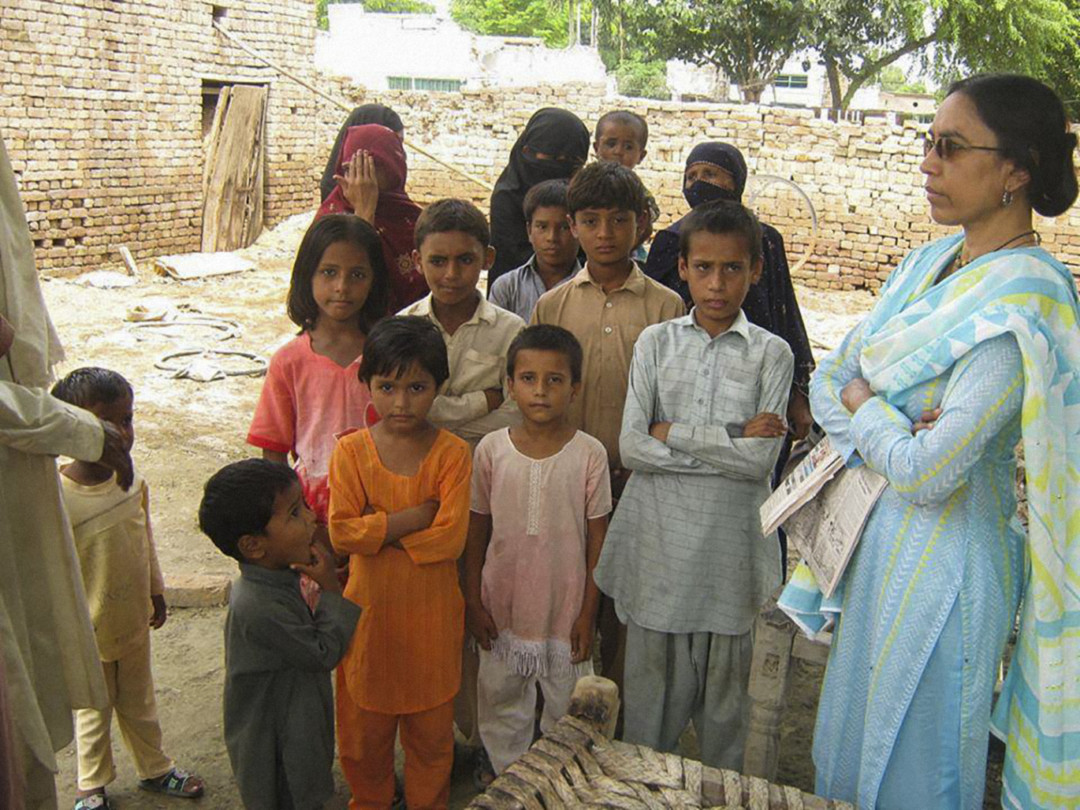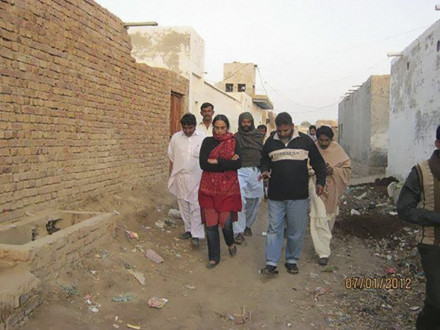13 March 2013
Karachi, Pakistan
Perween Rahman
Profession
Community
Motive
Exposure of illegal activity
Political dissent


Adolfo Olivas


Ahmed Divela


Amit Jethwa


Artan Cuku


Babita Deokaran


Bayo Ohu


Berta Cáceres


Bhupendra Veera


Bill Kayong


Boris Nemtsov


Boško Buha


Chai Boonthonglek


Charl Kinnear


Chut Wutty


Chynybek Aliev


Cihan Hayirsevener


Daphne Caruana Galizia


Darío Fernández


Derk Wiersum


Deyda Hydara


Édgar Quintero


Edmore Ndou


Edwin Dagua


Federico Del Prete


Fernando Villavicencio


Gezahegn Gebremeskel


Gilles Cistac


Habibur Mondal


Igor Alexandrov


Jacob Juma


Ján Kuciak


Javier Valdez


Joannah Stutchbury


José Ángel Flores


Jules Koum Koum


Kem Ley


Luis Marroquín


Mahamudo Amurane


Marcelo Rivera


María Elena Ferral Hernández


Marielle Franco


Milan Pantić


Milan Vukelić


Muhammad Khan


Nelson García


Nihal Perera


Oliver Ivanović


Orel Sambrano


Perween Rahman


Peter R. de Vries


Rajendra Singh


Salim Kancil


Sandeep Sharma


Sikhosiphi Radebe


Slaviša Krunić


Soe Moe Tun


Victor Mabunda


Virgil Săhleanu


Wayne Lotter


Yuniol Ramírez


Zezico Guajajara
13 March 2013
Karachi, Pakistan
Profession
Community
Motive
Exposure of illegal activity
Political dissent
Wednesday 13 March 2013 should have been just like any other day for Perween Rahman, a social activist known for her tireless work bettering the lives of those living in poverty in Pakistan. But that evening, as she was driving home from work, masked gunmen riding on a motorcycle opened fire on her car, fatally injuring her. She died that day, her white shalwar kameez soaked in blood, the bullets in her neck putting an abrupt end to her life’s work.
Rahman was a child of war. Born in 1957 in East Pakistan, now Bangladesh, she and her family had moved to Karachi after the country’s violent segregation in 1971. This experience made her acutely aware of the pains of displacement, and it is perhaps what drove her, a trained architect from a privileged background, to dedicate her life to the residents of Karachi’s Orangi Town, one of the largest informal settlements in the world.
‘As she evolved in her profession, the one thing that pained her most was the poor being evicted from their homes, because she knew what it was to be dispossessed and lose one’s home,’ said Rahman’s sister, Aquila Ismail. Out of this intense feeling grew her work to advocate for security of housing, which, said her sister, ‘ultimately led to her assassination’.
After graduating, Rahman had worked for a prestigious firm of architects. But just a few months into the job, she realized that designing offices and houses for the rich was not what she wanted to do. According to Ismail, ‘She felt that her professional skills were to be for the poor.’ She left the job and in 1982 joined the Orangi Pilot Project (OPP), an NGO that works in sanitation, housing and healthcare for Orangi Town’s residents.
The project was the brainchild of Dr Akhtar Hameed Khan, a development practitioner, whose work in participatory rural and squatter-community development gained him international recognition. Rahman joined the OPP as an unpaid intern, but quickly rose to become head of the organization’s housing and sanitation programmes before taking over its research and training institute. And when Khan passed away in 1999, Rahman led the project.
Orangi Town began expanding in the early 1970s, when refugees arrived in Karachi from East Pakistan after the war of independence. The low-income community is now home to well over two million people of different ethnicities. As a key member of the OPP, Rahman became a familiar face in the sprawling settlement, and her projects managed to create some sense of togetherness among the different ethnic communities as an antidote to the persistent violence.
Tensions between different communities and political parties have been part of Karachi’s makeup since the 1950s, and the ethnically diverse slums are often at the forefront of these battles, and experience regular riots and militancy. Orangi Town has also been hit hard by terrorism. The Pakistani Taliban started to operate in the area in 2000, upon which most people no longer dared to venture into the settlement; Rahman, however, was not deterred and bravely continued her work.
‘Perween gave poor communities the confidence to realize that they knew what was best for them and that achieving their goals was possible through self-sufficiency and by lobbying the government to play its part. This philosophy of shared responsibility has been instrumental in changing the manner in which people living in informal settlements all over Pakistan solve their development issues,’ said her sister.
Orangi Town’s problems aren’t limited to violence and development issues, however. In the rapidly expanding megacity of Karachi, land has become a precious commodity. The city’s inhabitants are constantly being threatened with eviction because the land they live on is not regulated – no ownership documents exist. And, as is often the case, luxury-housing projects seem to matter more to the government than the rights of the poor. But, as Rahman is recorded saying in Mahera Omar’s 2016 documentary The Rebel Optimist, ‘human development doesn’t emerge from concrete’.
Rahman’s work to help the residents of Orangi Town secure legal land rights had infuriated groups of land-grabbing criminals (or ‘land mafias’). It is generally believed that these groups are closely connected to powerful members of political parties in Karachi. As Rahman adds in the documentary, ‘The land mafia is the government itself.’

Some of the Orangi Town residents whose lives were improved by the Orangi Pilot Project's sanitation, housing and healthcare projects

Perween Rahman walking with her colleagues from the Orangi Pilot Project
According to Ismail, Rahman was particularly vocal about the issue of land grabs: ‘She stepped on powerful toes when she began to document how land was being snatched violently from the poor and handed to big developers. She had earlier documented the illegalities that caused the poor areas to be short of water. That report had shaken the water mafia,’ Ismail explained. ‘It was felt that her study of land supply would expose how the land mafias are within the government. Of course she had to be stopped.’
A day after Rahman’s murder, an alleged Taliban militant named Qari Bilal was killed during a police encounter in the Karachi neighbourhood of Manghopir. Without presenting much evidence, the police claimed that Bilal was responsible for Rahman’s murder. However, it has since emerged that although militants such as Bilal may have been involved, they were allegedly hired by local leaders of the Awami National Party (ANP).
In 2014, the Supreme Court ordered a new investigation into Rahman’s death after a judicial inquiry found that police officers had destroyed evidence and manipulated the investigation. The first of three joint-investigation teams was formed, which resulted in the arrests of Abdul Raheem Swati, a local leader of the ANP, and his son Mohammad Imran Swati, as well as three co-accused: Ayaz Shamzai, another local ANP leader, Amjad Hussain Khan and Ahmed Khan, a well-known figure among the city’s criminal gangs. Rahman had previously singled out Raheem Swati as someone who was threatening the OPP. However, the case is still in the courts nearly seven years later. A third joint-investigation team has been given until the end of 2019 to release its report, but there is a fear that the real perpetrators will go unpunished because of their connections to those in power.
The fight is not over for Rahman’s family and colleagues, who continue much of the work she had started and regularly receive threatening anonymous phone calls as a result. According to Ismail, ‘[Rahman’s] most important legacy is that nothing matters more than the relationships you build and that all relationships have to be built on justice. She was the core of my existence.’
November 2022 update
In December 2021, an anti-terrorism court in Karachi sentenced Abdul Raheem Swati, Ahmed Khan, Amjad Hussain Khan and Ayaz Swati to life imprisonment on charges of facilitating, aiding and abetting the outlawed Pakistani Taliban for her murder. A fifth accused, Imran Swati, was sentenced to seven years in prison. All five of the accused were fined 200 000 Pakistani rupees and they filed appeals against the conviction before the Sindh High Court (SHC). In November 2022, the SHC acquitted all five men, declaring that the evidence brought against the accused was inadmissible and failed to prove the connection between the accused and the murder.


20 July 2010
Gandhinagar, India
Amit Jethwa


15 October 2016
Mumbai, India
Bhupendra Veera


21 June 2016
Sarawak, Malaysia
Bill Kayong


11 February 2015
Klong Sai Pattana, Thailand
Chai Boonthonglek


26 April 2012
Koh Kong, Cambodia
Chut Wutty


5 May 2004
Bishkek, Kyrgyzstan
Chynybek Aliev


20 August 2000
Dhaka, Bangladesh
Habibur Mondal


10 July 2016
Phnom Penh, Cambodia
Kem Ley


16 October 2018
Haripur, Pakistan
Muhammad Khan


5 July 2013
Deraniyagala, Sri Lanka
Nihal Perera


19 June 2018
India
Rajendra Singh


26 September 2015
Selok Awar-Awar, East Java, Indonesia
Salim Kancil


24 March 2018
Bhind, Madhya Pradesh, India
Sandeep Sharma


13 December 2016
Monywa, Myanmar
Soe Moe Tun